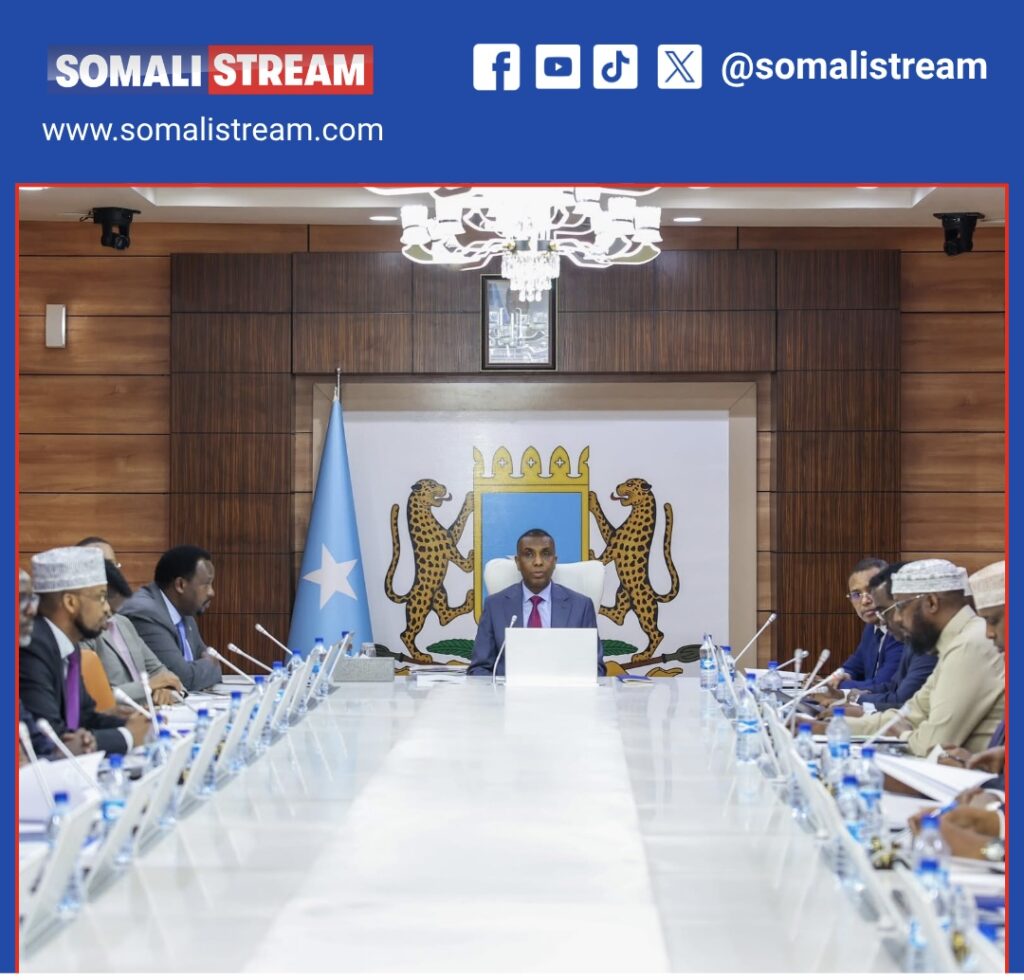In a landmark move for women’s rights and national development, the Council of Ministers of the Federal Government of Somalia today approved the Draft Law Prohibiting Female Genital Mutilation (FGM), alongside the National Strategy on Women, Peace, and Security, marking a significant step forward in the country’s commitment to protecting women and advancing gender equality.
The decisions came during the Cabinet’s weekly meeting, chaired by Prime Minister Hamza Abdi Barre, which endorsed several key national laws, agreements, and strategies aimed at strengthening governance and accelerating reform across the country.
In addition to the FGM Draft Law and the Women, Peace, and Security Strategy, the Cabinet also approved a Memorandum of Understanding between Somalia and Rwanda, designed to enhance bilateral cooperation in a wide range of sectors.
The Council further ratified the Convention of the International Mobile Satellite Organization (IMSO), enabling Somalia to access satellite-based services and research critical for national development.
The meeting also endorsed the National Ports Strategy, which outlines the long-term framework for strengthening and modernizing Somalia’s maritime infrastructure.
The session evaluated detailed briefings on general security conditions across the country, outcomes of the recent Somali Justice Sector Conference, and the ongoing national drought response.
The Chairman of the National Disaster Management Authority, Mohamud Maallin Abdulle presented an extensive report outlining the scale of current humanitarian needs, noting that 4.4 million people require urgent assistance due to the ongoing drought. He highlighted ongoing relief operations and the national plan to address the crisis.
Prime Minister Hamza Abdi Barre instructed all relevant government institutions to act swiftly and coordinate closely to deliver emergency support to drought-affected communities, urging agencies to accelerate relief efforts to alleviate the suffering of the Somali people.


